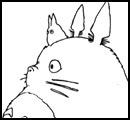In the 1920's, Walker, a Hollywood stuntman, has the disconcerting charge of being seen in films, but never recognized. Slowly revealed during "The Fall" are the circumstances of his accident: namely, a girlfriend leaving him for the film's star and a botched attempt at a foolhardy stunt. By telling a story, he is able to control at least one thing in his life. He captivates Alexandria better than any movie could.
Walker has a selfish plan to commit suicide by gaining Alexandria's trust. Since he is unable to move from bed, he enlists her to bring him pills. These attempts fail for different reasons, underlining the lack of power he has, even over whether he lives or dies. Alexandria befriends Walker before connecting him tangibly to the film industry. When his latest movie is projected at the hospital, she see his value to the new medium.
"The Fall" has a passing similarity to Guillermo del Toro's "Pan's Labyrinth," in that they both concern the inner lives of girls. However, "The Fall" lacks the earlier film's claustrophobia and brutality (mostly); it could spiral out infinitely. Paradoxically, pretentiousness is somehow an asset to Tarsem's vision. Traveling to India to film an incidental scene of a fantasy movie in front of the Taj Mahal almost defines the word. From the beginning, though, the ever-widening scope adds to a concatenating beauty.


1 comment:
I was hoping you would review this one! I liked the focus on storytelling, how elements would change as the girl's imagination would shift. It also lived up to its fantastical elements much better than Pan's Labyrinth did - though admittedly the "brutality" of the latter is a large part of what turned me off. I like the phrase "concatenating beauty" & am stealing it from you.
Post a Comment